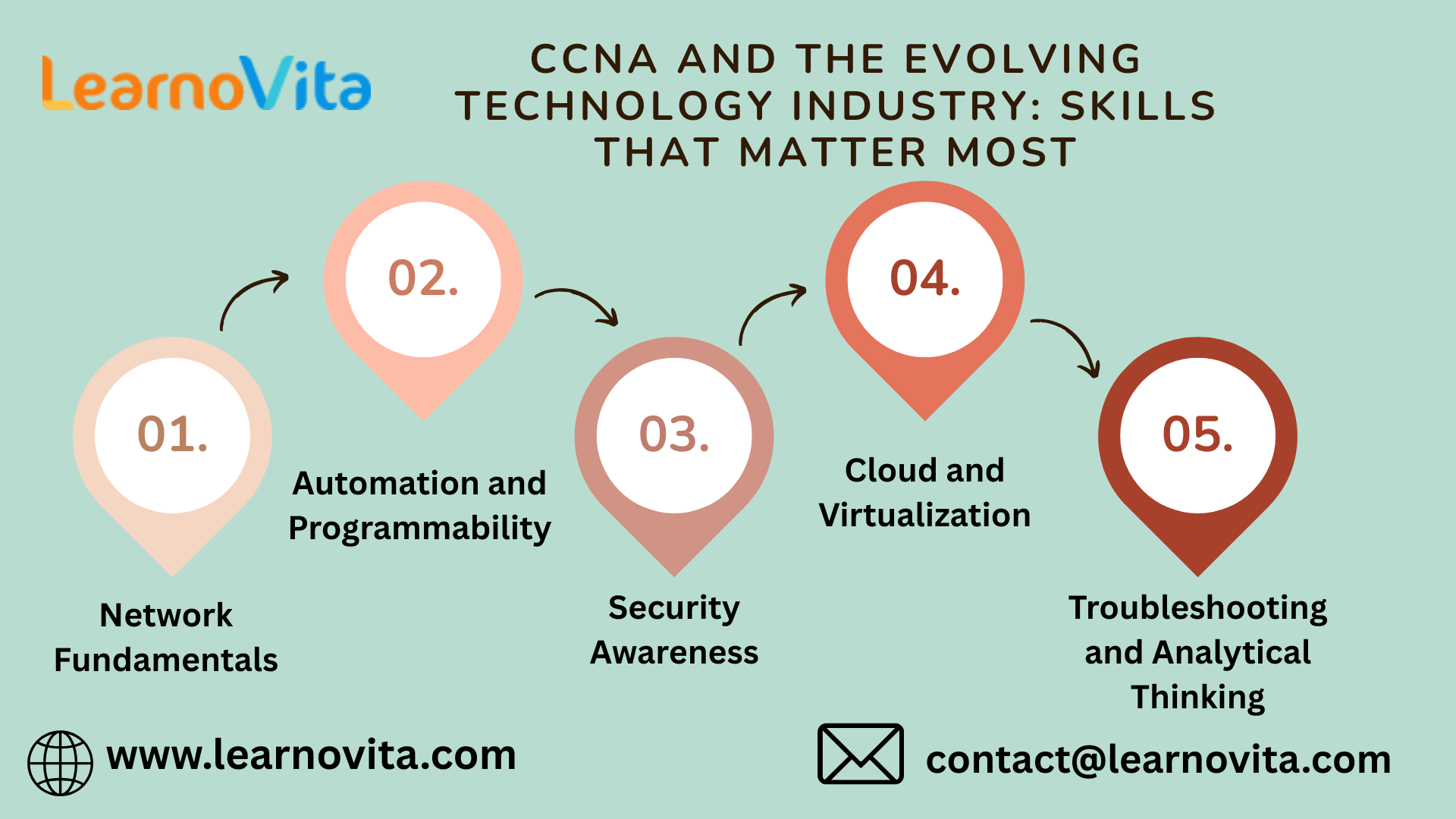Technology is advancing at a remarkable pace, driving innovations that are transforming industries across the globe. From cloud computing and cybersecurity to automation and artificial intelligence, every new development relies on robust and secure networks. As a result, networking professionals play a vital role in shaping the digital future and the Cisco Certified Network Associate CCNA Certification Course in Bangalore continues to be one of the most valuable credentials for those entering this field.
The Relevance of CCNA in Today’s Tech Landscape
The CCNA certification has been a trusted benchmark for networking professionals for years, validating their ability to install, configure, and troubleshoot modern networks. However, its significance has grown even more in recent times. Cisco has expanded the CCNA curriculum to include emerging technologies such as automation, cloud networking, and cybersecurity reflecting the realities of today’s interconnected IT environments. This evolution ensures that CCNA-certified professionals possess a balanced mix of traditional networking expertise and modern technical knowledge. In a world where digital transformation is constant, employers value CCNA holders for their adaptability, problem-solving ability, and readiness to work with cutting-edge technologies.
Key Skills That Define a Modern CCNA Professional

-
Networking Fundamentals
A strong understanding of core concepts like routing, switching, IP addressing, and subnetting remains essential. These foundational skills ensure seamless communication between systems and serve as the groundwork for more advanced networking roles. -
Automation and Programmability
With networks becoming more complex and software-driven, automation has become a critical skill. CCNA professionals should understand APIs, Python scripting, and tools like Cisco DNA Center. These competencies enable faster network operations, minimize human errors, and increase overall efficiency. -
Cybersecurity Awareness
In an age of constant cyber threats, network security cannot be overlooked. The CCNA Online Course curriculum emphasizes securing network devices, managing access controls, and implementing VPNs and firewalls. These skills prepare professionals to build resilient, secure networks that protect sensitive data. -
Cloud and Virtualization Skills
The rise of cloud computing has changed how organizations manage their IT infrastructure. Understanding how to connect and manage hybrid networks across platforms such as AWS, Azure, and Google Cloud is becoming increasingly important for CCNA-certified professionals. -
Troubleshooting and Analytical Thinking
While automation helps streamline tasks, human expertise remains critical for solving complex issues. CCNA professionals must be skilled at diagnosing problems, analyzing data, and implementing solutions qualities that are essential in any IT role.
Conclusion
As technologies like 5G, the Internet of Things (IoT), and AI-driven networking continue to expand, the need for skilled network professionals will only increase. The CCNA certification provides a strong foundation for those who want to grow in this fast-paced field, offering both technical depth and the flexibility to adapt to future innovations. In short, CCNA is more than just a certification it’s a career catalyst. It equips professionals with the essential skills, confidence, and mindset needed to succeed in an ever-changing technology landscape. For anyone looking to build a rewarding IT career, mastering the competencies behind CCNA is a crucial first step toward long-term success.


